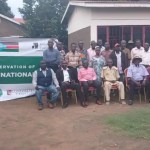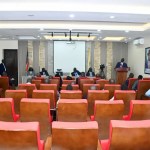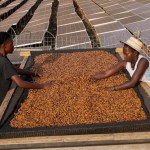(Juba) – As global coffee markets face increasing pressure from climate change, South Sudan is quietly emerging as an unexpected but promising player in the future of climate-resilient agriculture. While Brazil, the world’s largest producer of Arabica coffee suffers from erratic weather and declining yields, South Sudan’s Excelsa coffee offers a viable and sustainable alternative, particularly for investors seeking long term stability in an uncertain global supply chain.
Brazil, the backbone of the global Arabica coffee supply, has reported a 6.4% drop in production in the 2024–2025 growing season, with output falling to 40.9 million 60kg bags. Severe droughts, frosts, and rising temperatures have left coffee trees stressed and vulnerable.
The result has been poor flowering, smaller bean sizes, and lower harvest quality. This climatic strain is reflected in global markets, with Arabica coffee prices rising by 58% year-on-year in 2024. Uncertainty remains high as El Niño-related weather events become more frequent and severe.
By contrast, South Sudan’s Western Equatoria region is cultivating Excelsa coffee, a lesser-known variety that is more tolerant of heat, drought, and pests. Excelsa is native to the Congo Basin and naturally suited to equatorial climates like that of Nzara County, where average temperatures range between 20–37°C. Its deeper roots and robust leaf structure help it thrive in the kinds of conditions that challenge traditional coffee crops like Arabica and Robusta.
The “Excelling in Excelsa” project, a collaborative initiative supported by the UN’s Food and Agriculture Organization (FAO) and Equatoria Teak Company (ETC), is leading the development of this alternative coffee industry in South Sudan.
Over 1,500 farmers are currently involved, with ETC aiming to export 7 tonnes of specialty Excelsa to Europe by the end of 2025. The company projects that by 2027, it could earn up to $2 million (approximately 9.2 billion South Sudanese Pounds, at the current exchange rate of SSP 4,600 per USD) in annual revenue from Excelsa exports alone.
This shift is not without challenges. South Sudan continues to face serious obstacles including political instability, limited infrastructure, and high logistical costs. T
ransporting a 30 tonne shipment to the nearest port can cost more than $7,500. These factors increase the risks for investors, especially those unfamiliar with South Sudan’s emerging markets. However, supporters of the project argue that the potential benefits, both financial and developmental, outweigh the risks for those willing to invest strategically and for the long term.
Investors exploring climate smart opportunities are increasingly drawn to agricultural firms like ETC, which combine environmental sustainability with economic development. Excelsa’s unique flavour—described as sweet with chocolate and dark fruit notes—has also positioned it as a specialty product, able to compete in high-value markets abroad. For portfolio managers and ESG-focused funds, Excelsa represents an investment that aligns with both financial and ethical objectives.
Globally, coffee consumption continues to grow by an estimated 1.5–2% annually, even as production becomes more difficult in traditional growing regions. As a result, coffee stakeholders are looking for alternatives that can ensure steady supply without the volatility linked to climate-sensitive crops. South Sudan’s Excelsa may offer just that.
At the same time, adaptation efforts in Brazil are creating investment opportunities of their own. Initiatives around precision irrigation, drought-tolerant crop varieties, and climate monitoring technologies are gaining momentum. Companies involved in agricultural innovation—such as those producing soil moisture sensors or weather forecasting tools—could see long-term gains if Brazil’s coffee sector successfully modernises.
Yet for many observers, South Sudan’s story offers a different kind of value. Beyond its role in diversifying coffee supply, the development of Excelsa is seen as a symbol of resilience and potential. It provides new livelihoods for farming communities in a country still recovering from years of conflict. For South Sudan, success in the coffee sector could mean more than profit—it could represent progress, identity, and a path toward greater stability.
For now, global investors must weigh the promise of climate-hardy crops like Excelsa against the practical hurdles of doing business in fragile environments. But with climate change reshaping global agriculture, resilience has become a strategic advantage, and South Sudan may have found a way to turn its natural conditions into global opportunity.


















































